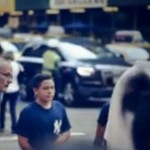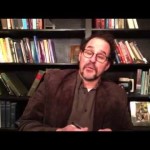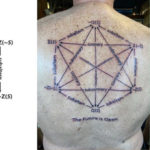We run our website the way we wished the whole internet worked: we provide high quality original content with no ads. We are funded solely by your direct support. Please consider supporting this project.
URI Inauguration of David M. Dooley -Greg’s Speech: 4/8/10
Watch Greg’s Speech at the Inauguration of David M. Dooley at the University of Rhode Island. Greg is introduced by Rev. Lynn Dooley, who begins speaking starting at 55:25.
Category: General
Tags: Free Will, Predestination
Related Reading

Living Into the Future
Why didn’t God create a “perfect world”? Here’s Greg’s response to that question. See more at The Work of the People.

How Can Salvation by Grace Involve Free Will?
How does salvation by grace work if people have free will? If salvation hinges on whether individuals choose to be saved or not, is salvation based on grace or works? If we have to choose for or against God, then doesn’t the credit for our salvation ultimately go to us? Along the same lines, doesn’t…

How do you respond to Acts 2:23 and 4:28?
Question: Acts 2:23 and 4:28 tell us that wicked people crucified Jesus just as God predestined them to do. If this wicked act could be predestined, why couldn’t every other wicked act be predestined? Doesn’t this refute your theory that human acts can’t be free if they are either predestined or foreknown? Answer: In Acts…

Free Will: What about “natural” evil? Was Hurricane Sandy a Free Agent?
What about natural evil? How does free will help to make sense of this? Greg reflects on the origins of sickness, natural disaster, animal suffering and so on. Hope you’re enjoying the series so far. There’s more to come!

The Risk of Love
The most basic and yet most profound teaching of the Bible is that “God is love” (1 Jn 4:8; 16). He is revealed to be a God who is triune—Father, Son and Holy Spirit (See Mt 3:16; 28:19, Jn 14:26; 15:26)—who’s very essence is an eternal, loving relationship. He created the world out of love…

Boyd’s Bad Ass Tattoo
by: Greg Boyd In the process of working through a philosophical issue surrounding the openness of the future around twenty years ago, I and two friends (Alan Rhoda and Tom Belt) ended up creating the “Hexagon of Opposition”, or “Hexagonic Logic of Futurity,” as I’ve sometimes called it. I’ll explain what it all means in…
